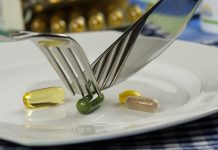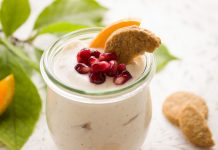
I am a 53-year-old nursing student at a local college. Prior to taking a nutrition course, I was an avid naturopath with an extensive library of reputable journals, publications and medical books and cabinets full of supplements, herbal remedies, “all-natural” health and beauty aids. I frequent several health food stores in my area and have been taking vitamin/mineral supplements and various herbal extracts for years. I consider myself to be in excellent health.
In my nutrition class, I have been learning about nutrition quackery and alternative medicines that for the most part are purported to be at their worst frauds and at their best adjuncts to conventional medical therapies. I have been weighing all the evidence and have come up with the following questions.
Since so many of the illnesses we encounter today can be directly linked to emotional and psychological causes, then what part does the health food industry play in the placebo cure? Does it really matter how a patient is cured, but more than they are cured? Will conventional medicine ever credit the alternative approaches with being able to use the power of thought to perfect a cure or to make someone healthier? Are there any viable studies in this area and will the mainstream ever use this knowledge to help those who may be best healed from the mind down? Or am I just trying to hold on to my old beliefs with the hope that I didn’t spend all that time and money on modern-day witch doctors?
Sometimes a placebo can be used to treat symptoms for a very short period of time, but that is at the discretion of a medical doctor or psychiatrist. Are you a naturopathic doctor (ND) who is licensed by the state or a person who practices natural remedies? If you are not a naturopathic doctor be careful how you promote yourself or treat patients.
Rather than trying to blend all your knowledge into a unified theory, consider your knowledge as different tools available in the delivery of nursing care to your patients. Do be aware though that unless you are a naturopathic doctor licensed by the state where you practice, you will probably not be allowed to prescribe any treatment (natural or otherwise) for your patients. But you can make your medical colleagues aware that other treatments are possible.
Testimonials by a person who is not a medical doctor can influence people into thinking they could treat themselves with supplements while deferring medical treatment for symptoms. This would not be advised. Testimonials such as “it worked for me, you should try it” should be ignored. Anyone preying on vulnerable people with promises of a “natural cure” should be reported to their state medical licensing board. What is so natural about a pill anyway?
I would not position the use of alternative medicine including the power of thought or prayer in opposition to traditional medicine. Physicians are starting to consider spirituality and the mind connection to healing. You could search the National Library of Medicine for research about this.
In 1992, the US Congress funded the Office of Alternative Medicine within the National Institute of Health to look into alternative treatments. Take a look at the National Center for Complementary and Alternative Medicine and explore for yourself the research information they have accumulated about alternative medicine.
Any herbal treatment must be substantiated by a clinical trial to be accepted throughout the medical community. The Germans and English also have research to substantiate herbal medicine and that research is gaining proponents in the U.S.



